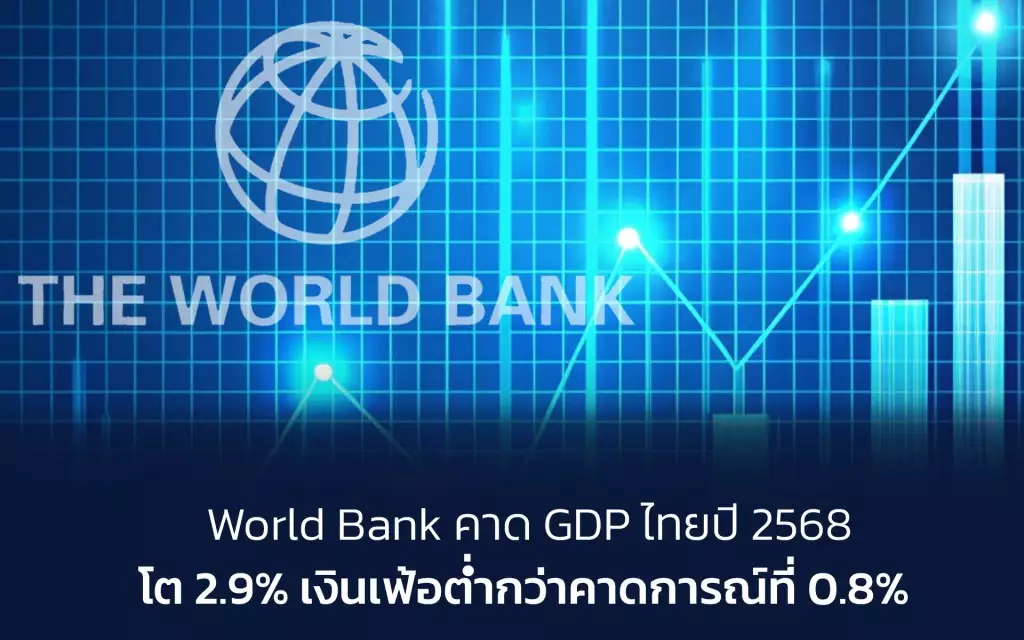



The World Bank projects that the Thai economy will grow by 2.9% in 2025, up from 2.6% in 2024, supported by public and private investment, as well as a recovery in the tourism sector, which is expected to return to pre-COVID-19 levels by mid-year. However, high household debt and sluggish investment recovery remain risk factors for the country's long-term growth.
Inflation rate lower than BOT’s forecast
The latest *Thailand Economic Monitor* report said inflation in 2025 is expected to be 0.8%, below the Bank of Thailand’s (BOT) target range, while the economic recovery still faces structural challenges that require reform to enhance competitiveness and create sustainable growth.
Despite the economic expansion, Thailand’s GDP is still below its potential.
While consumption and tourism sectors provide a boost to the economy, the report says these factors may not be enough for long-term growth. Thailand needs to increase investment in infrastructure and new technologies to enhance its competitiveness in the global market.
Economic stimulus measures help reduce poverty but affect fiscal position
The government’s 10,000-baht digital cash transfer scheme boosted consumption and reduced the poverty rate to 8.2% in 2024 from 8.5% in 2023. However, the measure came with a high fiscal cost of 145 billion baht, or 0.8% of GDP, which could affect fiscal stability in the long run.
Tourism recovers but risks over-reliance
Thailand’s tourism sector is on track to grow strongly, with visitor arrivals expected to rise to 40 million in 2025 from 35.3 million in 2024. However, the report warns that over-reliance on tourism could leave the Thai economy vulnerable to global economic uncertainties and geopolitical factors.
Household debt remains a big problem
Despite government relief measures such as debt suspension and interest rate cuts, household debt remains high at 90.7% of GDP, the highest in Southeast Asia. Addressing this issue requires careful consideration so as not to impact financial sector stability.
SMEs and startups: drivers of the future economy
Small and medium-sized enterprises (SMEs) and startups are key to the future of the Thai economy, with SMEs currently accounting for 99.5% of all businesses and providing jobs for 69.5% of the country’s workforce. However, barriers to accessing finance and technology continue to limit the growth of these businesses.
“Innovation and entrepreneurship are no longer optional if Thailand is to compete in a rapidly changing global economy,” added Christian Gihada Torres, World Bank Senior Private Sector Specialist.
Guidelines for economic restructuring towards sustainable growth
The World Bank recommends that governments take important measures to strengthen the economy, including:
– Improve the efficiency of the tax system, reduce reliance on economic stimulus policies through cash handouts.
– Support investment in infrastructure and new technologies to increase the country’s competitive potential.
– Promote SMEs and startups to access capital and technology to increase productivity and innovation.
– Improve laws and regulations that hinder foreign competition and investment.
summarize
The Thai economy in 2025 is likely to recover from government consumption and investment, but it will still face challenges from high household debt and investment constraints. If Thailand wants to become a high-income country by 2037, reforming the economic structure to be more flexible and driven by innovation is essential to be able to compete in the global arena with stability and sustainability.
Data source: Thansettakij